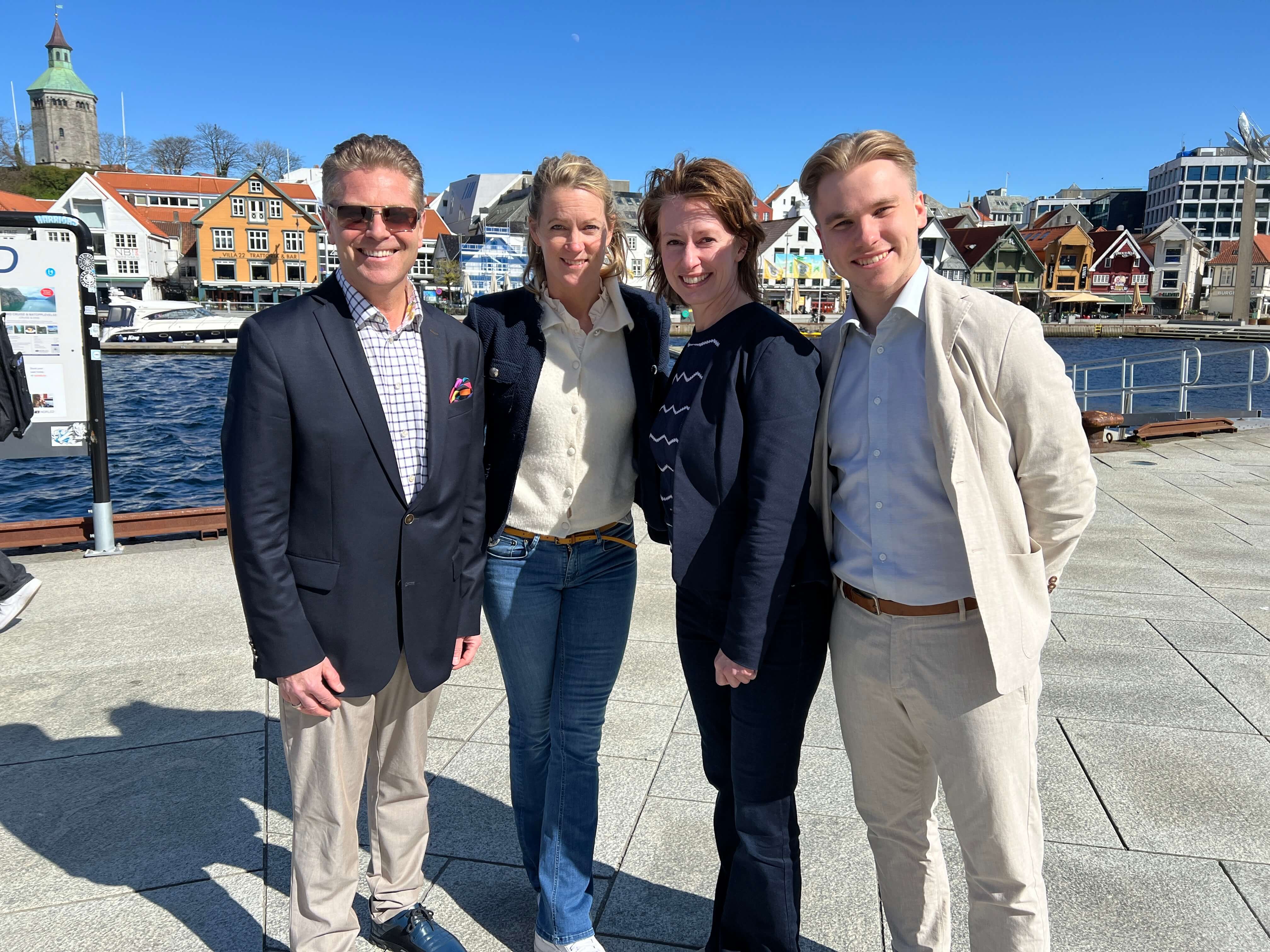The Energy Agenda
Building on the global network of energy: ONS in India
How different are the Indian, and Asian perspectives, on energy than the Northern European? Definitely different, and that is why ONS highly values the possibility to deepen the collaboration with the World Energy Policy Summit.

"Even though we might have different opinions, we need to sit down and discuss. We value a platform where open and honest discussions are encouraged," says Anne Blomberg, Project Manager in ONS.
Together with ONS CEO & President, Leif Johan Sevland, she took part in the World Energy Policy Summit, organized by thought leader and Indian energy expert Narendra Taneja. The event brought together thought leaders, policymakers, and energy experts from around the world with the common goal of fostering open and honest discussions on the pressing issues of the global energy landscape. And the truth is that seeing the world from different energy and economic viewpoints and realities has much to say in exploring how we will get to net zero.

Here's a glimpse of the key takeaways from the gathering:
- Diverse Paths to Energy Transition: The summit underscored that every nation will forge its unique journey toward energy transition, emphasizing the need for tailored approaches and cooperation.
- Global South's Quest for Net Zero: Participants recognized the challenges the Global South faces in achieving net-zero emissions. Foreign investments emerged as a pivotal driver of progress and collaboration in these regions.
- India's Bold Aspirations: India, a significant global energy player, is committed to achieving net-zero emissions by 2070 and generating 50% of its power from renewables by 2030. With plans to secure $15trillion in investments by 2070, India represents an immense opportunity for growth and partnership.
- For India – How to decarbonize “Hard to abate” industries is key. Electrifying the transport sector will not be enough. Hydrogen is therefore high on the agenda and India has big opportunities in for low-cost hydrogen production from solar energy.
- For decarbonization, India is considering multiple options such as electricity from renewables, electrifying the transport sector, hydrogen production, biofuels, nuclear energy with SMR (Small Modular Reactors) and battery production.
- Challenges and Opportunities: India's dependence on oil and gas imports underscores the need for a reliable and sustainable energy supply to bolster its economic growth. The focus on renewables, including offshore wind, is evident from upcoming auctions in 2024, offering attractive prospects for stakeholders.
- Middle East's Climate Imperatives and Potential:Despite climate change vulnerabilities, the Middle East holds promise for clean energy technologies, low-cost hydrogen production, and carbon capture and storage (CCS) projects, fostering investment and innovation.
For the Norwegian participants one of the highlights of the summit was the collaboration between Norway and India. Norwegian renewable tech companies, such as Ocean Sun and WorldWide Wind, are exploring opportunities in the Indian market, showcasing the potential for cross-border partnerships in the renewable energy sector.
Also, Equinor's interest in expanding into offshore wind aligns with India's increasing demand for renewable energy, illustrating mutually beneficial ties between these nations.
ONS is proud to collaborate with partners worldwide on international issues and global energy trends. Strategic alliances with World Energy Policy Summit in India, Munich Security Conference in Germany, Beijing Energy Club in China, KAPSARC in Saudi Arabia, Centre on Global Energy Policy at Columbia University in the United States and The Norwegian Institute of International Affairs (NUPI) in Norway are examples of partnerships of high value to ONS. Combined resources and competencies enable ONS and our partners to bridge the energy agenda with other geopolitical perspectives.
Listen to our podcast talk with Narendra Taneja below:

Volunteer at ONS?

Equinor to partner up with ONS+
.png)


